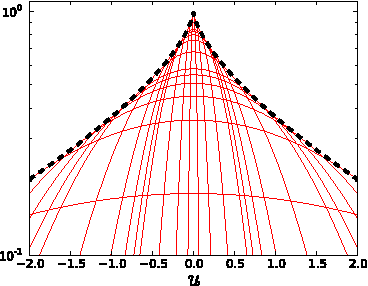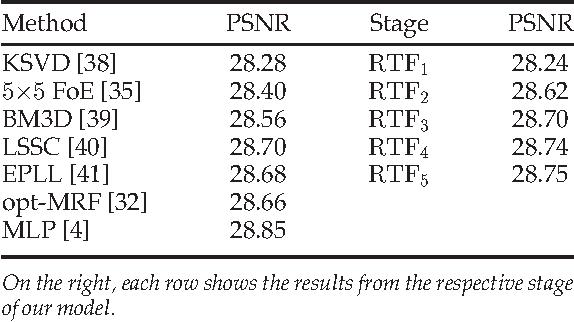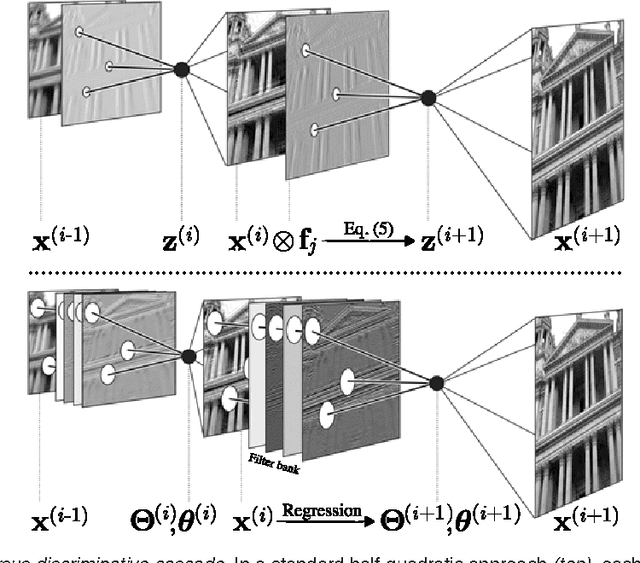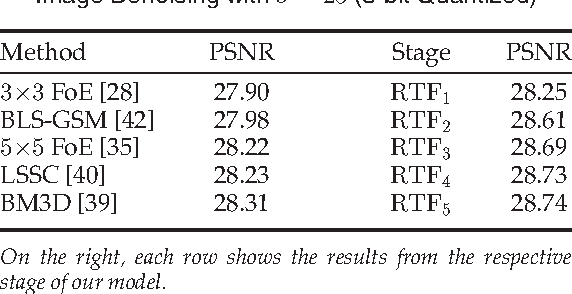Cascades of Regression Tree Fields for Image Restoration
Paper and Code
Nov 21, 2014



Conditional random fields (CRFs) are popular discriminative models for computer vision and have been successfully applied in the domain of image restoration, especially to image denoising. For image deblurring, however, discriminative approaches have been mostly lacking. We posit two reasons for this: First, the blur kernel is often only known at test time, requiring any discriminative approach to cope with considerable variability. Second, given this variability it is quite difficult to construct suitable features for discriminative prediction. To address these challenges we first show a connection between common half-quadratic inference for generative image priors and Gaussian CRFs. Based on this analysis, we then propose a cascade model for image restoration that consists of a Gaussian CRF at each stage. Each stage of our cascade is semi-parametric, i.e. it depends on the instance-specific parameters of the restoration problem, such as the blur kernel. We train our model by loss minimization with synthetically generated training data. Our experiments show that when applied to non-blind image deblurring, the proposed approach is efficient and yields state-of-the-art restoration quality on images corrupted with synthetic and real blur. Moreover, we demonstrate its suitability for image denoising, where we achieve competitive results for grayscale and color images.
 Add to Chrome
Add to Chrome Add to Firefox
Add to Firefox Add to Edge
Add to Edge